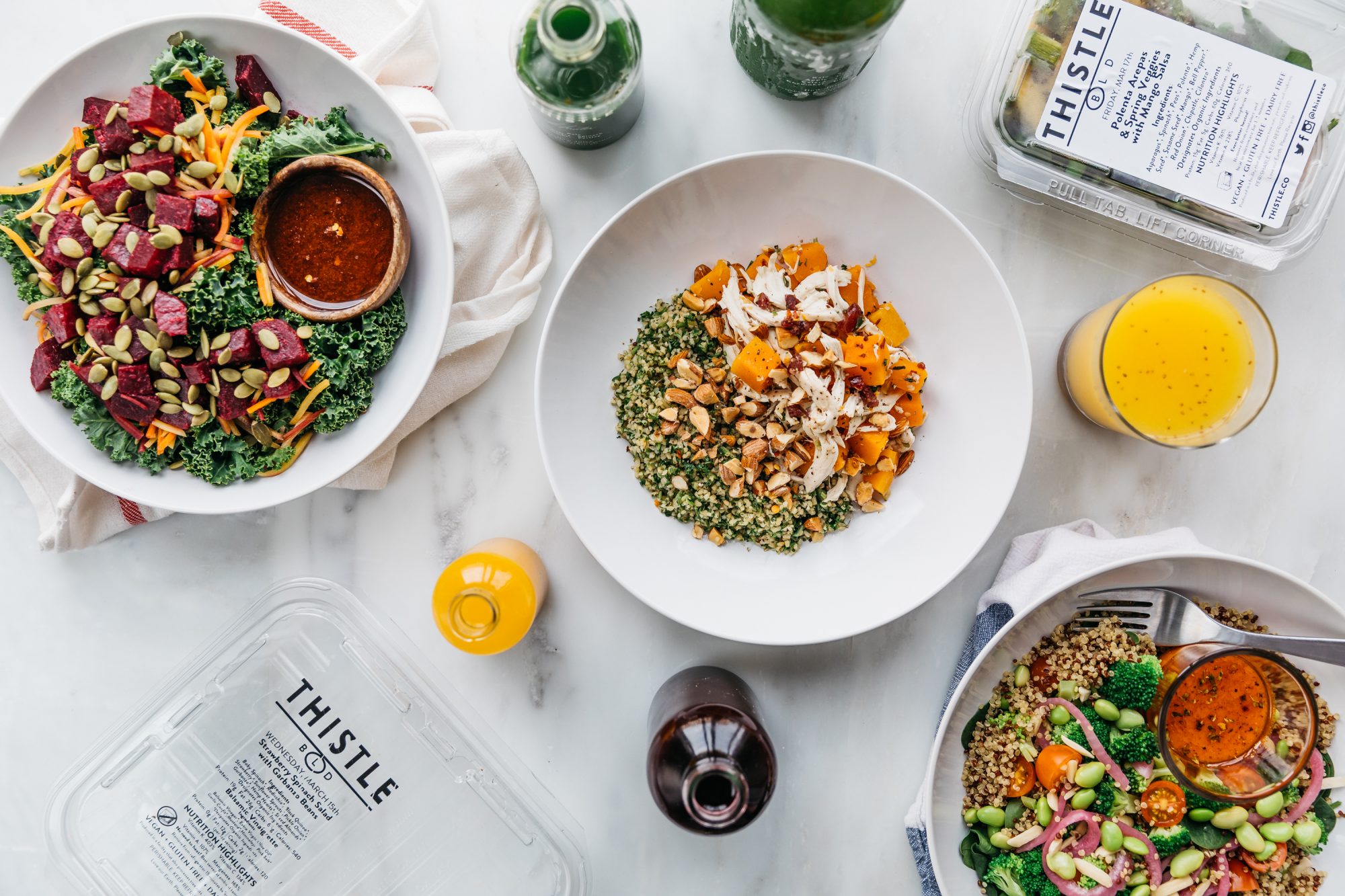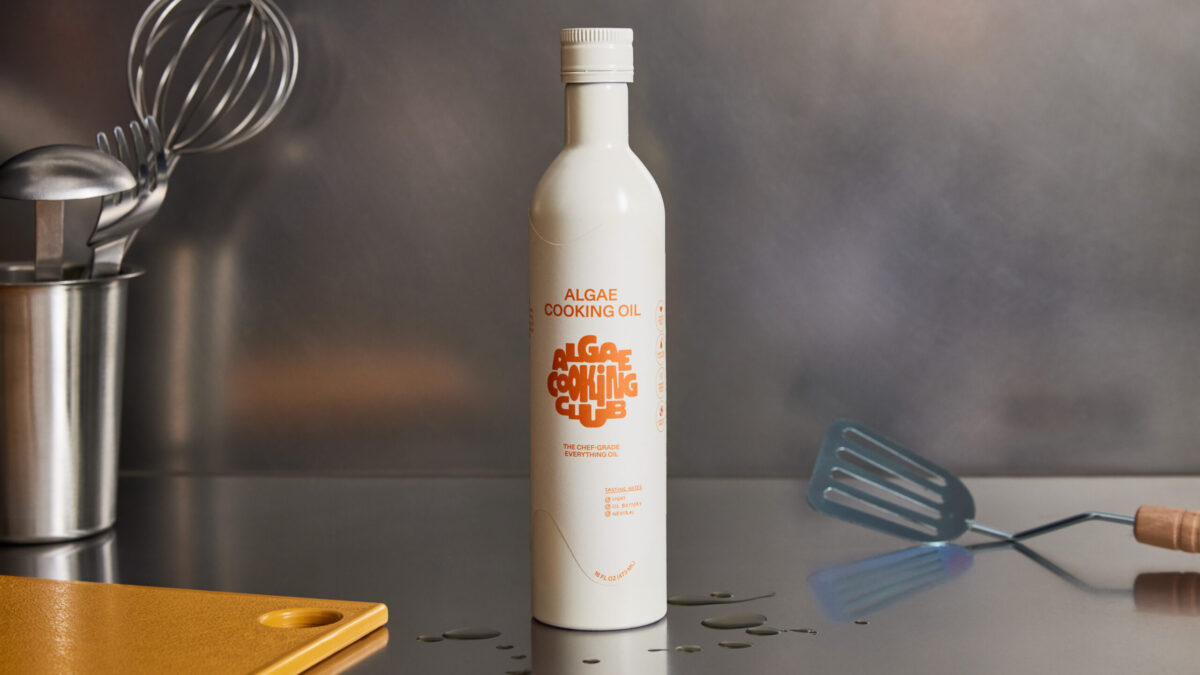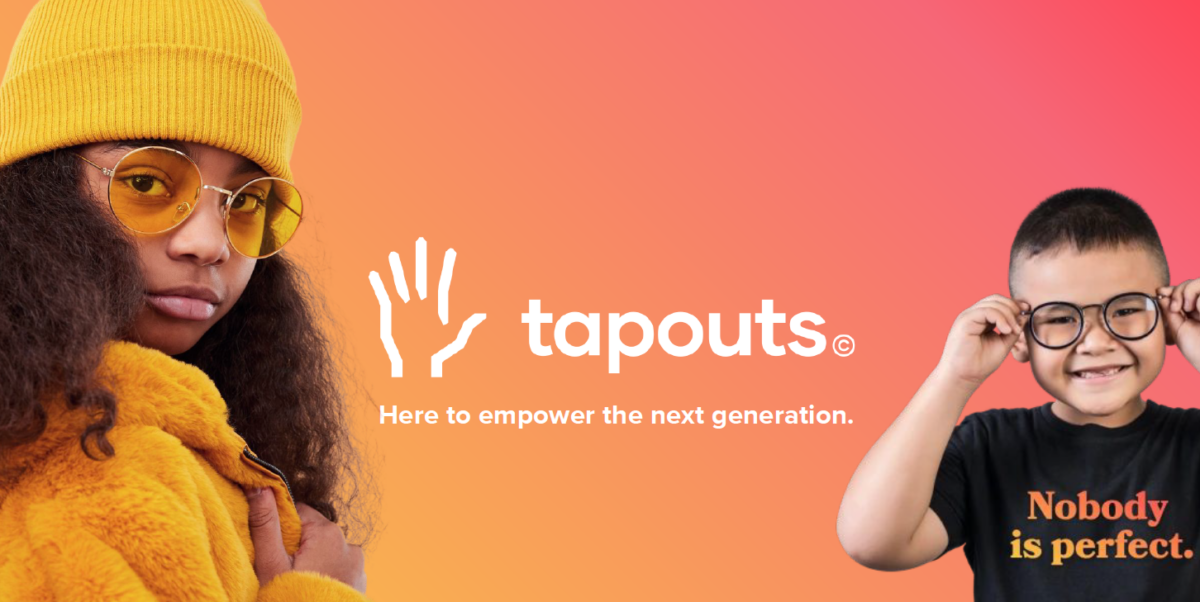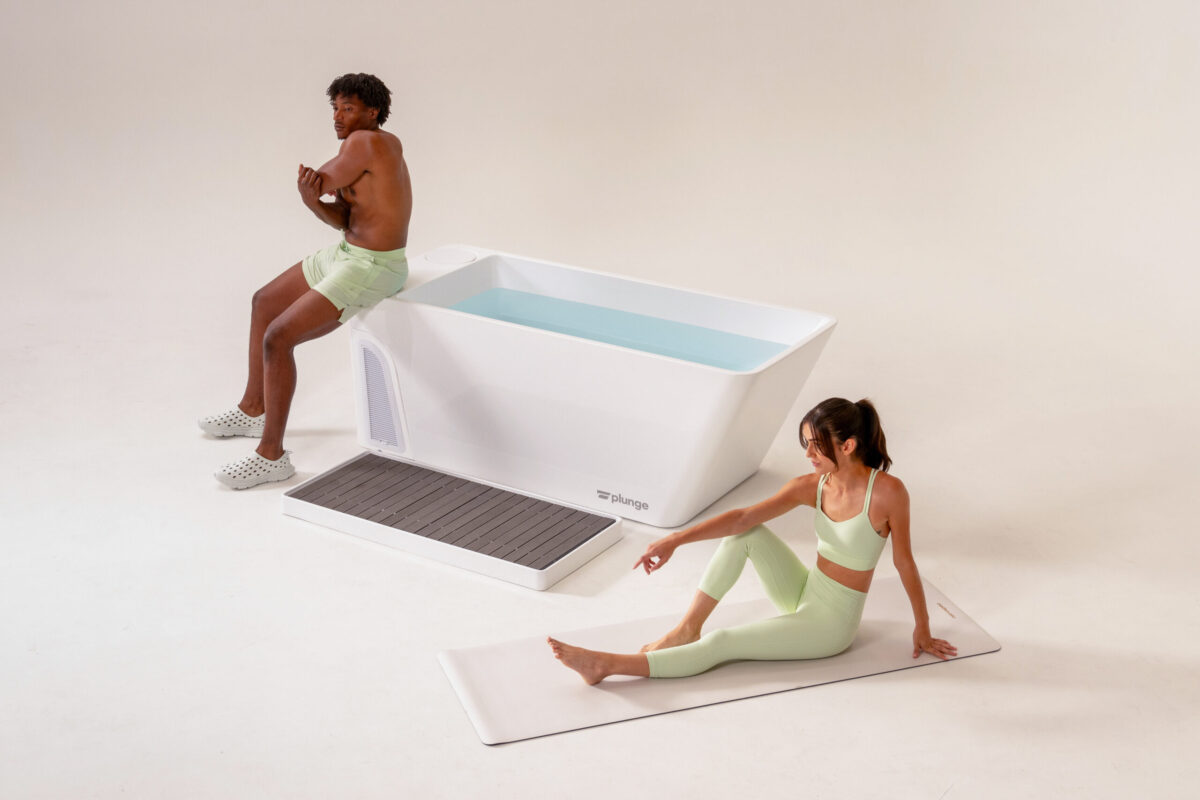Startup Q&A is an interview series showcasing early-stage health, fitness, and wellness companies.
In this Q&A, we caught up with Shiri Avnery, co-founder and president of Thistle, a plant- and planet-forward meal delivery service. A PhD in environmental science & policy, Shiri shares about renewing the natural world with natural foods like fresh produce, whole grains, and more, as well as the company’s efforts to enter the East Coast.
Can you tell us about what you’re working on at Thistle?
Shiri Avnery: Thistle is a modern, tech-enabled food and nutrition brand that delivers deliciously fresh, ready-to-eat, plant-forward meals to the doorsteps of customers on the West Coast.
We believe nourishing, plant-forward foods can (and should) be the most tasty, convenient, and accessible option out there, which is why we provide food that renews your health and happiness while also helping to renew our planet. Our meals are inspired by cuisines across the globe and are always filled with fresh produce, nuts, seeds, legumes, and whole grains to make you feel energized, empowered, and focused throughout your day.
Our fleet of drivers delivers meals up to twice per week to ensure freshness and quality. The combination of providing incredibly delicious, healthy, plant-rich, culinarily diverse meals that are ready to enjoy at an accessible price point is what differentiates us from other options on the table.
How did you come up with the idea? What key insight led you to pursue this opportunity?
SA: My husband Ash and I launched Thistle together in 2013, motivated by different experiences in our lives. Ash comes from a long line of doctors, and he grew up with stories about patients who had difficulty following advice about changing their diet to support better health. Poor diet is the leading risk factor for death across the globe due to contributions to diseases such as heart disease, type 2 diabetes, and cancer — responsible for 11M deaths annually.
I’ve always been passionate about the environment, following this passion through a PhD in environmental science & policy. Eating a plant-forward diet is the single most impactful way to reduce your overall environmental footprint, yet so many of us have trouble sticking to it because of all of the well-known reasons (some real, some perceived): It’s hard to research recipes, shop, cook, and clean up; it doesn’t taste as good; it’s too expensive, etc.
Ash and I would discuss how these two generational problems, the declining health of the population and of the planet, pointed to a single solution: eat more plants.
We wanted to build a product and service that removed all of the obstacles to eating healthy and planet-friendly food, making it both easy to do and a celebration to enjoy.
How did you turn your idea into a company?
SA: Like many startups, Thistle is very different today versus how we started (sometimes it takes a few pivots to get product-market fit right!).
We launched the company with a line of raw, cold-pressed juice made in a tiny shared kitchen space that we sold in retail pop-ups or directly to corporate clients. We always knew we wanted to move into food, but because we didn’t have the resources to invest in a kitchen, equipment, build a team, etc., we worked with third-party caterers to produce our meals that we then delivered on demand.
We learned some valuable lessons from this: 1) The customer demand for convenient, plant-forward food definitely existed; 2) That said, on-demand was an incredibly wasteful delivery model; 3) Our food was too important to outsource — we couldn’t find anyone able to provide meals at the quality level, price point, and with the level of variety we needed.
These insights helped us raise capital and, ultimately, become a vertically integrated company delivering a rotating menu of fresh, healthy, vegetable-centered meals on a subscription basis today.
How big can this get? What’s the addressable market and how do you go about capturing it?
SA: Food is a massive category — $1.7T in the US alone. Healthy food is a subset of that market at $220B in the US and growing fast across the world — estimated to reach $1.1T globally by 2027.
Consumer demand for plant-based foods is outperforming total food growth today. It’s expected to continue to do so over the next decade as greater numbers of people realize that eating more plants is a critical part of the long-term health of both the planet and our population.
What’s really exciting is that this demand is driven by the mainstream, with more than a third of all US consumers identifying as flexitarian and over half of Gen Z saying they are trying to reduce meat consumption. The way we capture the market is by continuing to invest in our product, showing our customers that eating healthy meals made from plants doesn’t have to be a sacrifice — it can truly be the most delicious, most convenient, most accessible option out there.
Who is the core customer? How are you acquiring customers? And how will you grow the customer base?
SA: Our customers range from busy working professionals to family caregivers of both young and elderly family members, all of whom want to prioritize their health and eat a plant-rich diet but may not have the time or knowledge of how to do so in a delicious and consistent way.
We acquire customers through word-of-mouth referrals along with a mix of content creation and digital and offline advertising. Longer term, we hope to continue to appeal to a broader customer base with new product lines (e.g. kids meals) and partnerships that make our meals more accessible, like working with hospitals and healthcare providers to subsidize Thistle meals as part of recovery or preventative care programs.
Looking at your road map, what are some of the milestones you’re targeting over the next 3-6 months?
SA: In addition to continuing to grow our West Coast market, we’re going to be heads down preparing for an East Coast expansion in the second half of 2022. Stay tuned!
Anything else you’d like to share with readers?
SA: Animal agriculture is one of the most destructive forces on our planet. We tackle the single most impactful way to improve the food system — changing the demand curve for animal products. Replacing a typical American meal with a Thistle meal reduces its carbon footprint by ~80%, not to mention benefits for biodiversity, deforestation, resource consumption, and air/water pollution. Additionally, we manufacture our meals in facilities that run on 100% renewable power and offset carbon emissions from last-mile customer deliveries.
We’re committed to paying a fair, living wage to our employees; our starting wage across all positions and geographies is $20 per hour plus benefits, with opportunities for career growth and progression.
Thistle has also taken steps to do its part in keeping communities healthy, from our weekly donations to local food banks to this winter’s “Shots for Shots” campaign, an initiative encouraging COVID-19 vaccines in exchange for free Thistle cold-pressed, organic shots. We have committed up to $100,000 to reward customers for simply protecting themselves and others by getting vaccinated, in addition to providing ongoing support to two California-based nonprofits in their own vaccination efforts.
We are very proud of this initiative, and while other brands have rewarded vaccines in a similar way, Thistle is the first to celebrate a health-forward decision with a health-forward reward.
If you’re interested in having your company featured in our Startup Q&A series, send an email to team@fitt.co.
 Thistle
Thistle


